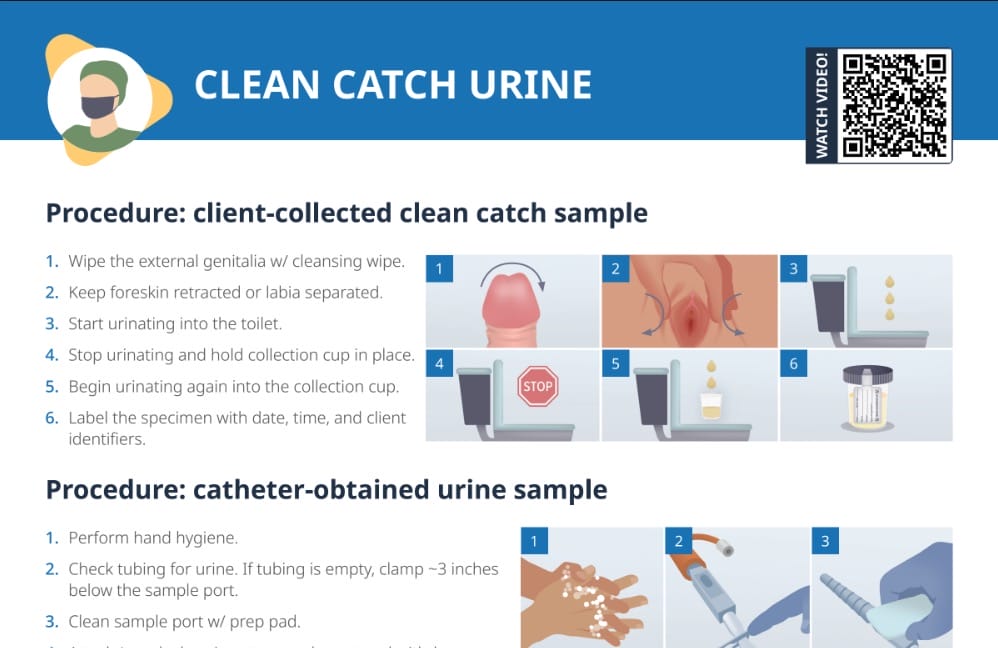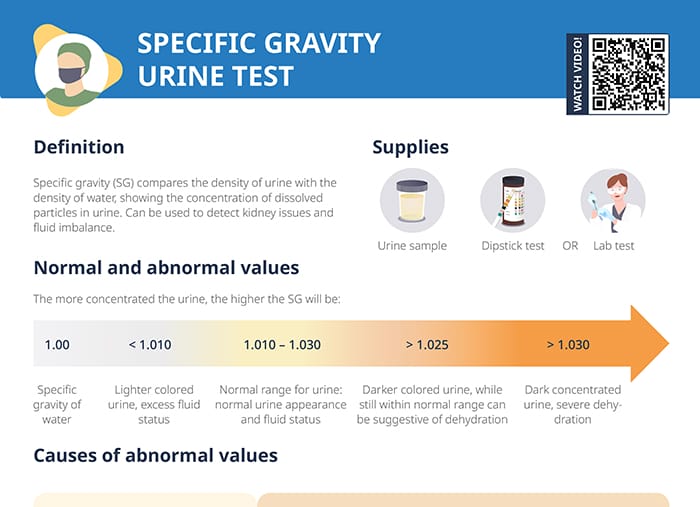What is the specific gravity of urine?
Specific gravity is the ratio that compares the density of urine with the density of water, showing the concentration of dissolved chemical particles in urine. Testing specific gravity can be used to detect kidney issues and fluid imbalances, as it is an indication of the kidneys’ ability to concentrate or dilute urine.
Specific gravity = ratio of urine’s density compared to the standard (water).
Urine specific gravity test procedure
Supplies
- Urine sample
- Dipstick, or sent to lab → lab test; (urine SG tests usually not done at bedside)
When are urine specific gravity tests done?
Urine specific gravity is a routine part of urinalysis.
Interpreting normal and abnormal values
Abnormal values indicate an imbalance in the client’s fluid status.
Note: The more concentrated the urine, the higher the specific gravity will be.

Low specific gravity of urine
The specific gravity of water is 1.00. Low specific gravity is classified as a value under 1.010 and comes with lighter colored urine, indicating excess fluid status.
Possible causes of low specific gravity:
- Diabetes insipidus
- Kidney failure
- Acute tubular necrosis
- Pyelonephritis/glomerulonephritis
- Psychogenic polydipsia
- Malignant HTN
- High levels of glucose, protein,
- RBCs, WBCs, or bacteria in urine
Normal range for specific gravity
Normal urine appearance and fluid status are indicated by the normal range for urine specific gravity: 1.010–1.030.
Note: A constant specific gravity level around 0.010 despite fluid intake (normal range, but not changing) is a sign of severe renal damage and renal failure.
Note: Neonates can have a normal urine specific gravity of 1.003.
High specific gravity
Specific gravity over 1.025 is still within normal range, but can be suggestive of dehydration and will come with darker colored urine.
High specific gravity is defined as a level above 1.030 for dark, concentrated urine, and indicates severe dehydration or too many particles in the urine.
Possible causes of high specific gravity:
- Volume loss (dehydration, diarrhea, vomiting, fever, some medications)
- Congestive heart failure
- Renal artery stenosis
- Shock
- SIADH
- Trauma, stress reaction, surgery, drugs that ADH secretion
- High levels of glucose, protein, RBCs, WBCs, or bacteria in urine
- Medications: dextran, IV contrast dye, sucrose

